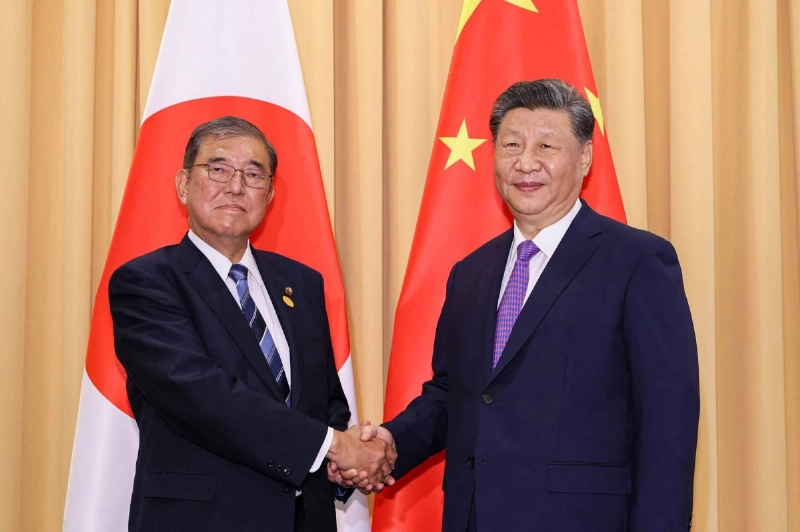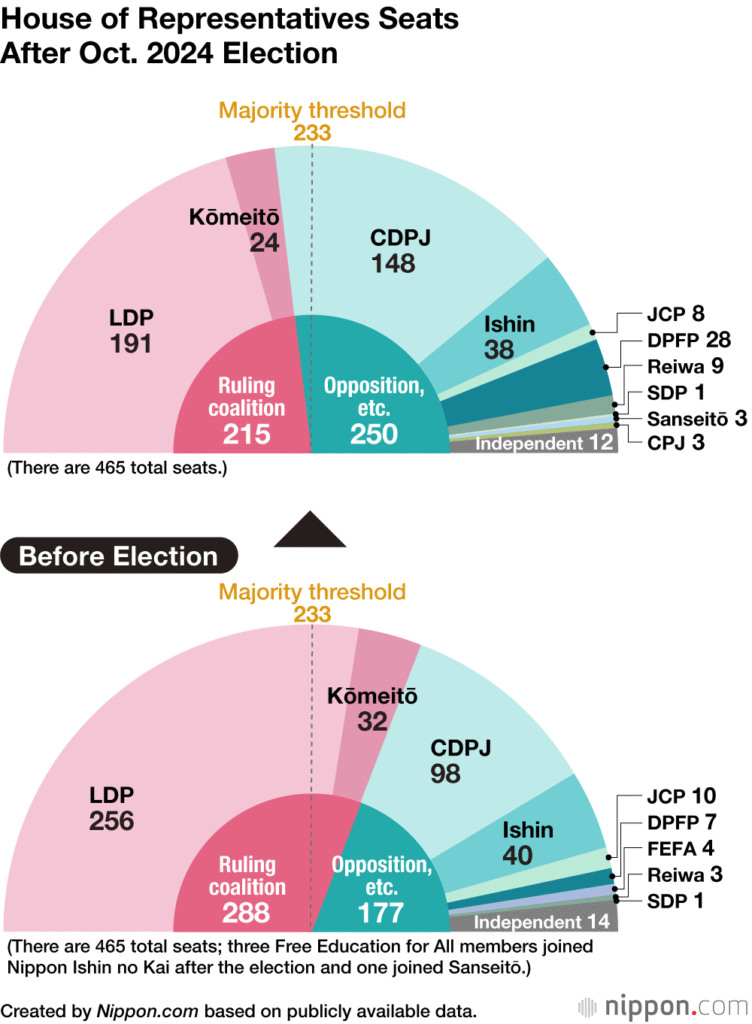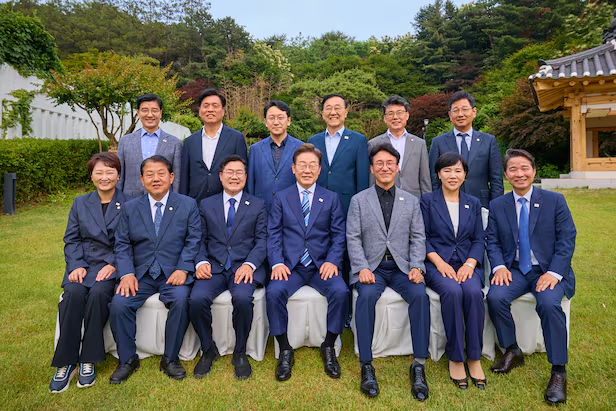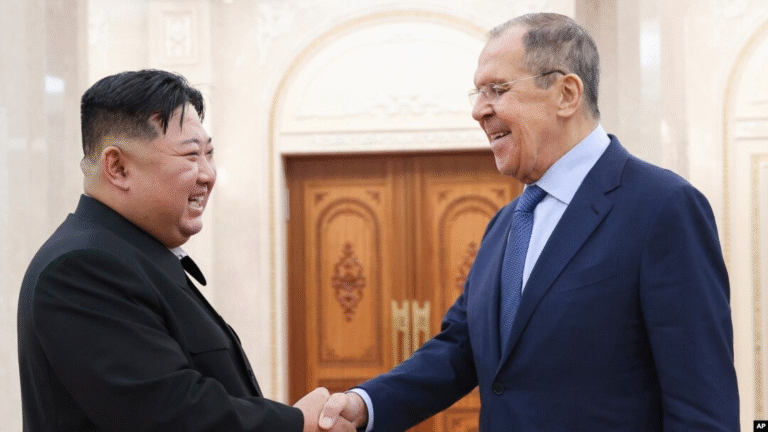
Shigeru Ishiba met with Chinese President Xi Jinping in November 2024 at the Asia-Pacific Economic Cooperation Forum in Peru. Photo Credit: The Japan Times
By Andrew Dickson
The America-Eurasia Center
East Asia Program
Eurasia News
The Liberal Democratic Party (LDP) has won most elections in Japan since the party’s formation in 1955. Although the LDP is still the largest political party in Japan, the party lost its majority in the House of Representatives in the 2024 elections. With the LDP no longer having a majority, it is possible there will be changes in Japan’s foreign policy, including improved relations with China and less support for increased defense spending.

Comparison of the number of seats won by each political party in Japan before and after the election. Photo Credit: Nippon.com
An important factor in the LDP losing its majority was a scandal involving the party not reporting over 600 million Yen it had received in donations, which is required by the country’s political funding laws. Money that is given to candidates at fundraisers has to be spent on campaigning, but some members of the party stored the money they had raised in slush funds. After the scandal was reported, Prime Minister Fumio Kishida replaced cabinet members who had not reported donations. However, this did not help decrease the cabinet’s high disapproval ratings which were reported to be 79% after the scandal.[1] Due to low approval ratings, Kishida resigned before the 2024 elections, and Shigeru Ishiba was elected prime minister by the House. Ishiba’s election as Prime Minister is considered to have increased divisions within the LDP as Ishiba did not appoint any allies of Shinzo Abe to his cabinet, and had previously challenged Abe in the election for prime minister. Compared to Abe, Ishiba has less support from the conservative faction of the LDP, and it is possible members of this faction will support other parties in future elections, making it likely the LDP will lose more seats.[2]
One reason for the LDP’s success in elections is opposition to the LDP has often been divided between a number of parties that have not been able to form a single party to challenge the LDP. After the 2024 elections, the largest opposition party was the Constitutional Democratic Party of Japan (CDP). Although a number of small opposition parties exist in Japan, there are now fewer opposition parties than in the past as the CDP merged with Democratic Party for the People and the Social Democratic Party in 2020.[3] The merge of these parties with the CDP is likely a reason the CDP has won more seats in the House than most other opposition parties in previous elections.
Japan’s constitution was written in 1947 after the end of World War II, and Article 9 renounced war for settling international disputes. Because of this Article, Japan’s military has been allowed to have a limited number of weapons that can only be used for self-defense.[4] Due limits on the number of weapons the military could have, defense spending in Japan has often been low. In 1976, the Ministry of Finance supported defense spending being less than 1% of Japan’s GDP. This continued until 2016 when the defense budget was estimated to be as much as 2.5% of Japan’s GDP. [5] The increase occurred after 2014 when Article 9 was reinterpreted to allow for collective self-defense. This allows Japan’s military to support allies such as South Korea, Taiwan, or the U.S. in the event of an attack. There has been support for collective self-defense from some members of the LDP due to China and North Korea increasing the size of their militaries. Additionally, after Russia’s invasion of Ukraine, there have been concerns a similar conflict could happen Asia, possibly between China and Taiwan.[6] Another cause of tensions between China and Japan is the dispute over the Senkaku Islands. These islands are controlled by Japan, but are also claimed China. The Chinese Coast Guard and aircraft often enter waters and airspace around the islands, which has caused there to be support for more defense spending in Japan.
After increasing defense spending, Prime Minister Abe also supported amending the Constitution to allow for collective self-defense. Although collective self-defense has been allowed through a reinterpretation of the constitution, Abe supported an amendment because it would make the military’s power more explicit and prevent challenges to collective self-defense policies. Amending Japan’s constitution is difficult as would require approval from two-thirds of the National Diet and a majority of voters in a referendum.
In contrast to some members of the LDP, the CDP has opposed constitutional changes, and supports pacifism stipulated by the constitution.[7] Abe’s support for increased defense spending worsened Japan’s relations with China, and was viewed as making conflict likely. However, China will be more supportive of the CDP’s foreign policy. In March 2025, the Katsuya Okada, a standing advisor of the CDP, lead a delegation of party members to meet with members of the Chinese Communist Party to discuss ways to strengthen relations between the two countries. Meetings between members of the CDP and Chinese Communist Party have occurred every year for the last 20 years.[8] Although the LDP still has more seats than the CDP, The Diplomat considers Ishiba to be less supportive than Abe of increased defense spending. This could make improvement in China-Japan relations more likely, in addition to the CDP having more influence on Japanese politics.[9]
Besides support for increased defense spending and constitutional changes, there are other policies that have worsened China-Japan relations. In 2023, Japan started to release nuclear wastewater from the Fukushima Plant after the plan was improved by the International Atomic Energy Agency. However, the plan was opposed by China due to concerns about the environmental impact of the wastewater.[10] The CDP also opposes the release of wastewater, and has wanted to establish a new framework to improve the safety of the suspension of nuclear fuel. In order for China to improve relations with Japan, it will need to make changes the counterespionage law. This law has caused a number of Japanese citizens and other foreigners visiting China to be detained after being falsely accused of criticizing the government’s policies, or supporting the independence of Taiwan and Hong Kong.[11] If China stopped falsely accusing foreigners of espionage, there could be more support in Japan for decreasing tensions between the two countries.
China’s tensions between Japan and other countries in the region make it understandable for Japan to be concerned about a possible conflict. However, increased defense spending and constitutional changes supported by some members of the LDP worsened relations with China. If Prime Minister Ishiba’s cabinet and members of the CDP continue to support resolving conflict with China in other ways, it is possible relations between the two countries will improve.
[1] Chris Lau, “Japan’s Ruling Party Hit by Scandal Over Undocumented Political Funds,” CNN, December 19, 2023, https://www.cnn.com/2023/12/20/asia/japan-ldp-politics-fund-scandal-intl-hnk
[2] Rintaro Nishimura. “The End of the ‘Abe Era’?,” Tokyo Review, October 24, 2024, https://www.tokyoreview.net/2024/10/the-end-of-the-abe-era/
[3] “Japan’s Largest Opposition Parties to Merge in September,” The Asahi Shimbun, August 20, 2020,
https://www.asahi.com/ajw/articles/13652272
[4] “Amending Japan’s Pacifist Constitution,” Institute for Security & Development Policy, April 2018, https://www.isdp.eu/publication/amending-japans-pacifist-constitution/
[5] John Wright, “The Persistent Power of 1 Percent,” Sasakawa USA, September 2016, https://spfusa.org/wp-content/uploads/2016/09/1-percent-final.pdf
[6] Erik Isaksson, “Beyond Revisionism and Status Quo: Japanese Political Party Discourse on International Order and Ukraine,” Cambridge Review of International Affairs, March 23, 2025, https://doi.org/10.1080/09557571.2025.2477797
[7] “Basic Policies,” The Constitutional Democratic Party of Japan, 2021, https://cdp-japan.jp/english/basic-policies
[8] “Party delegation to China confirms deepening inter-party exchanges with the Chinese Communist Party,” The Constitutional Democratic Party of Japan, March 21, 2025, https://cdp-japan.jp/english/news/20250501_9189
[9] Kawashima Shin, “What Next for Japan’s Relations With China?,” The Diplomat, January 16, 2025, https://thediplomat.com/2025/01/what-next-for-japan-china-relations/
[10] Tessa Wong, “Fukushima: What are the Concerns Over Wastewater Release?,” BBC, August 24, 2023, https://www.bbc.com/news/world-asia-66106162
[11] Akiho Yaita, “Fast-Rising Number of Japanese Detained in China is an International Issue,” Japan Forward, November 21, 2023, https://japan-forward.com/fast-rising-number-of-japanese-detained-in-china-is-an-international-issue/





